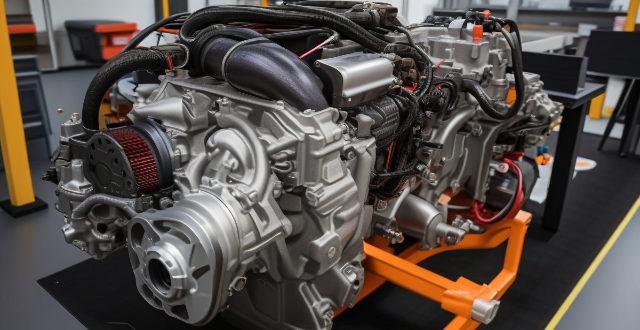The cost of replacing a car engine varies significantly depending on the type of engine, labor costs, parts and accessories, and miscellaneous expenses. Replacing a standard engine typically costs between $3,000 and $7,000, while a performance engine can cost anywhere from $8,000 to $20,000 or more. Labor costs vary depending on where you take your car for engine replacement, with dealerships being the most expensive option and DIY being the least expensive but requiring extensive knowledge and experience. In addition to the engine itself, other parts and accessories such as oil and filter, coolant, belts and hoses, sensors and wiring harnesses may need to be replaced during an engine swap. Miscellaneous expenses such as towing, rental car, and taxes and fees should also be considered when budgeting for a new engine.

Cost of Replacing a Car Engine
Replacing a car engine can be a costly endeavor, and the cost varies significantly depending on several factors. Here's a breakdown of the expenses involved:
1. Type of Engine
The type of engine you want to replace plays a crucial role in determining the overall cost. There are two main types of engines:
- Standard Engine: This is the basic engine that comes with the car when you buy it. Replacing a standard engine typically costs between $3,000 and $7,000.
- Performance Engine: A performance engine is designed to provide higher power and efficiency than a standard engine. Replacing a performance engine can cost anywhere from $8,000 to $20,000 or more.
2. Labor Costs
Labor costs vary depending on where you take your car for engine replacement. Here are some common options:
- Dealership: Taking your car to a dealership for engine replacement is usually the most expensive option. Labor costs at a dealership can range from $50 to $150 per hour, and the job may take several days to complete.
- Independent Mechanic: An independent mechanic typically charges less than a dealership but still provides quality work. Labor costs at an independent mechanic can range from $40 to $100 per hour, and the job may take one to three days to complete.
- DIY (Do It Yourself): If you have the skills and tools, you can save money by replacing the engine yourself. However, this option requires extensive knowledge and experience, so it's not recommended for beginners.
3. Parts and Accessories
In addition to the engine itself, there are other parts and accessories that need to be replaced during an engine swap. These include:
- Oil and Filter: You'll need to purchase new oil and a filter for your new engine.
- Coolant: New coolant is necessary to ensure proper cooling of your new engine.
- Belts and Hoses: Belts and hoses wear out over time, so it's best to replace them when installing a new engine.
- Sensors and Wiring Harnesses: Some sensors and wiring harnesses may need to be replaced if they are not compatible with the new engine.
4. Miscellaneous Expenses
There are also some miscellaneous expenses that you should consider when replacing an engine:
- Towing: If your car is not drivable, you'll need to budget for towing it to the repair shop.
- Rental Car: While your car is being worked on, you may need to rent a car for transportation.
- Taxes and Fees: Depending on where you live, there may be taxes or fees associated with purchasing a new engine or having it installed.
Conclusion
Replacing a car engine is a significant investment, both in terms of time and money. The total cost depends on several factors, including the type of engine, labor costs, parts and accessories, and miscellaneous expenses. By considering all these factors, you can make an informed decision about whether replacing your car engine is worth the expense.